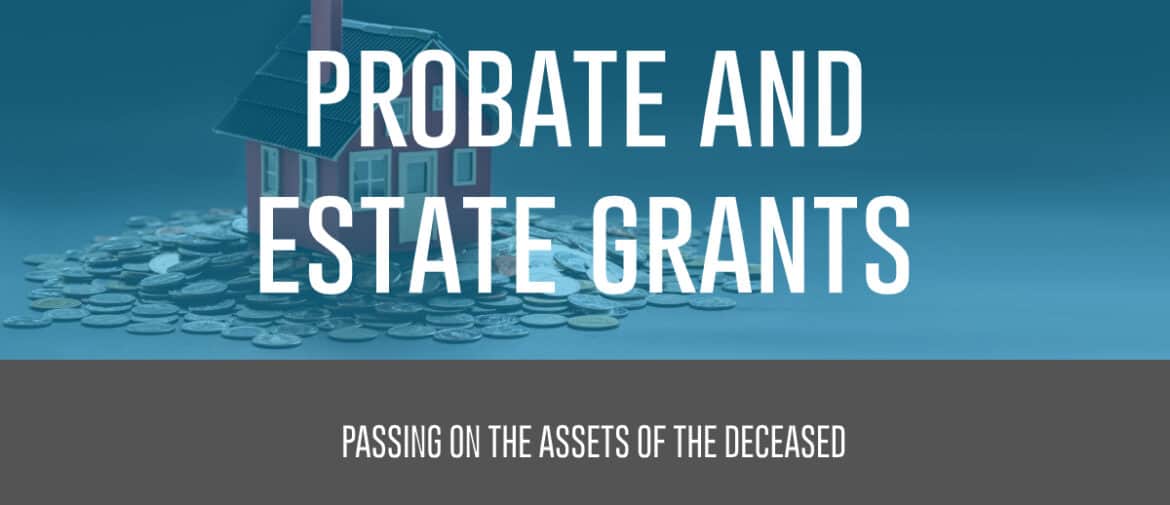The grief of losing a loved one is often compounded by the difficulty of trying to figure out what to do with their assets. The process of passing on the estate of a deceased relative or friend (the “Deceased”) can sometimes seem like trying to navigate through a labyrinth.
This article aims to provide some clarity around how to pass on the assets of the Deceased.
What is Probate?
Probate is the process of proving the legal validity of a will.
This process allows for any disputes around the will to be brought forward for settlement. It also allows a person to be officially appointed as the executor or personal representative (“Executor”) of the estate.
Once the process is complete the court will issue the estate grant.
Much of the Deceased’s assets, such as real property or bank accounts, cannot be transmitted to another person without this estate grant. The exception is property held in joint tenancy. However, holding property in joint tenancy has it owns risks.
It is customary for the lawyer’s fee for the estate grant to be paid from the estate, meaning the Executor does not have to pay out of pocket.
No Executor or No Will?
Usually the person who will be Executor is named in the will.
If no Executor is named, or there is no will, then the Wills, Estates and Succession Act, [SBC 2009] Chapter 13 sets out specific classes of persons who are allowed to apply to represent the estate.
If the Deceased left no will an estate grant will still be required to pass on assets such as real estate, bank accounts, cars, and stocks or other financial instruments.
However, low value bank accounts, stocks or other financial instruments, or cars may be able to be transmitted without an estate grant. This is at the discretion of the financial institution or ICBC.
The Estate Grant Process
The estate grant process involves searching for any other wills that might exist and advertising for creditors.
1. Legal Notice to All Parties
Notice that you are applying for the estate grant must also be given to all persons who have the legal right to challenge the will. This includes those who are disinherited and don’t have their names included in the will.
2. Preparing Legal Documents
A number of probate documents must be prepared in the required form and filed with the Supreme Court of BC along with a $200 filing fee. Details of the assets to be transmitted along with their value will also be sent.
3. Submitting Application and Notice of Probate Fees
Once the courts process the estate grant application a notice will be sent informing you of just how much is owed for probate fees. Probate fees vary by province, but in B.C. are approximately 1.4% of the total value of the estate.
For example:
If you have a $1,000,000 estate then probate fees are $14,000. If you have a will, this includes the value of all items being transmitted through the will, whether an estate grant is required to transmit these items or not.
The estate grant will not be released without payment of the probate fees. As the probate fee applies to all property, including real estate, the total amount that has to be paid can be very high indeed.
An estate planning lawyer can help review your estate and advise how to reduce the potential probate fees.
4. Approval and Debt Payment
Once the estate grant is released the Executor must pay out the estate’s debts from funds held in the estate, or by sale of the estate’s assets.
The Executor will also be responsible for ensuring taxes are filed and a final Clearance Certificate for the Estate should be issued by CRA.
5. Transfer of Assets
Finally, the Executor will then be able to transmit the assets in the estate to the rightful recipients under the will.
There are waiting periods before an Estate can be distributed to allow interested parties to make claims.
Conclusion
We hope you have a better understanding on how to legally move forward in the event that you become involved with an estate matter.
If you have any questions or need help obtaining an estate grant, you can call us directly at (778) 565-4700
or simply fill out our contact form to schedule a free consultation today.
The preceding content is for informational purposes only and does not constitute legal or professional advice. To obtain such advice, please contact our offices directly.
Last updated on April 20th, 2021 at 11:13 am

